Disaster response requires an all-inclusive approach

Disasters cause vulnerability and increase poverty, limiting the scope for establishing a just, equitable, and resilient society. Whether natural or human-induced, disasters have a disproportionate impact on different groups of people, highlighting the importance of social inclusion in breaking the barriers of inequality.
The theme for this year's International Day for Disaster Risk Reduction (IDDRR) is "Fighting Inequality for a Resilient Future." The question is: resilient for whom, and to what extent? Resilience-building requires a whole-of-society approach that is inclusive and intersectional. People intersect with age, sex/gender, ethnicity, (dis)ability, remote location, difficult circumstances, and other forms of marginalisation require special attention.
People in Bangladesh are vulnerable to extreme events such as floods, cyclones, riverbank erosion, salinity intrusion, seasonal droughts and other catastrophes. Due to seismic zones in the northern and eastern regions of the country, earthquakes are also a major concern. Of all the disasters, floods inundate up to two-thirds of Bangladesh once every three to five years, and around 60 percent of the worldwide deaths caused by cyclones over the last two decades have also occurred in Bangladesh.
Over the last decade, Bangladesh has been playing a crucial role in strengthening indigenous knowledge-based disaster response and providing support for building the resilience of different groups of people. Government and non-governmental organisations, development agencies, academia, and other stakeholders are unitedly contributing to building a resilient country. Bangladesh has been identified as a role model in facing the challenges of disasters, but intersectional communities need equitable attention in disaster risk reduction. Health crises, the absence of healthy practices, social behaviours, norms, gender inequalities, and other inequalities embedded in various sectors need to be scrutinised through an intersectional lens.
Gender Responsive Resilience and Intersectionality in Policy and Practice (GRRIPP), South Asia is a four-year networking project. The GRRIPP awardees have made some crucial recommendations that are closely related to the theme of IDDRR 2023. With UK Research and Innovation funding, GRRIPP has sponsored several projects and activities in South Asia, Africa, Latin America, and the Caribbean regions, using an intersectional approach to reduce inequality and build resilience. The South Asian research and activities, spread over Bangladesh, India, Nepal and Sri Lanka, have identified some area-specific challenges of inequalities and drawn some conclusions for different regions.
A study conducted in Nepal and India found that changes in maternal health trends are causing lower access to maternal care services, and healthcare workers and caregivers have experienced gender-specific vulnerabilities. The study also highlighted the limitations of institutional and regulatory frameworks.
GRRIPP research in Bangladesh and India focused on capacity enhancement through developing a curriculum on disaster risk reduction, humanitarian response, and intersectionality. The disaster management curriculum aims to strengthen gender sensitivity, social inclusion perspectives, and intersectionality within modules on preparedness, mitigation, response, and recovery. It also covers differential exposure to hazards and building resilience of women, girl children, and gender minorities.
Another research in Bangladesh focused on raising awareness through conducting training, workshops, video show programmes, leaflets, posters, and billboard displays. It identified that developing educational tools containing information on women's and children's rights, and issues of domestic violence, sexual harassment, child protection, dowry, and early marriage are effective in reducing inequalities.
Research conducted in Nepal identified that women with disabilities experienced various challenges during disasters. Due to limited mobility or severe disabilities, they needed someone to accompany them to health facilities, leading to greater transport costs that negatively affected their access to health services. Health facilities offered limited services and the infrastructure and resources were not disability friendly.
All the research findings have been disseminated through seminars, workshops, and roundtable discussions in media, global and regional sharing, and print and electronic media. A strategic guideline is underway and to be handed out to the policymakers in the South Asian region starting with Bangladesh's Ministry of Disaster Management and Relief.
Bangladesh is considered a pioneer in making relevant policies on disaster risk reduction. Within South Asia, the Standing Orders on Disaster (SOD) is such a policy document, first produced in 1997 and has been revised two times in 2010 and 2019. With the spirit of Sustainable Development Goals (SDGs), and a vision to "leave no one behind," the revised SOD ensures inclusion and underscores the participation of women, children, elderly people, and persons with disabilities in all stages of disaster risk management.
The disaster management ministry is responding to partnerships with different stakeholders with the vision of an all-of-society approach such as the Bangladesh Preparedness Partnership initiative with the Asian Disaster Preparedness Center (ADPC). The revised National Plan for Disaster Management (NPDM) 2021-2025 adopted an inclusive approach for community-level interventions, "to ensure incorporation of gender issues in decision-making and ensure participation of women and men, girls and boys in all the priority actions of NPDM." The vision of NPDM 2021-2025 is "Winning resilience against all odds," with the goals of reducing disaster risk and building resilience.
In addressing the differential impacts of disasters on intersectional categories, the adoption of pragmatic and effective policies with implementation strategies is required for fighting the challenges of inequality.
Mahbuba Nasreen is Director and Professor of the Institute of Disaster Management and Vulnerability Studies (IDMVS), University of Dhaka, Bangladesh.
Views expressed in this article are the author's own.
Follow The Daily Star Opinion on Facebook for the latest opinions, commentaries and analyses by experts and professionals. To contribute your article or letter to The Daily Star Opinion, see our guidelines for submission.

 For all latest news, follow The Daily Star's Google News channel.
For all latest news, follow The Daily Star's Google News channel. 
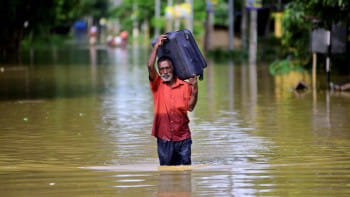
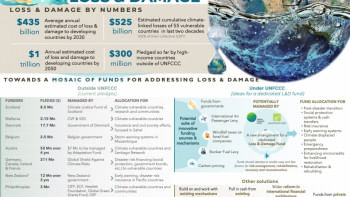



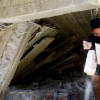
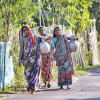
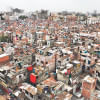
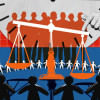


Comments